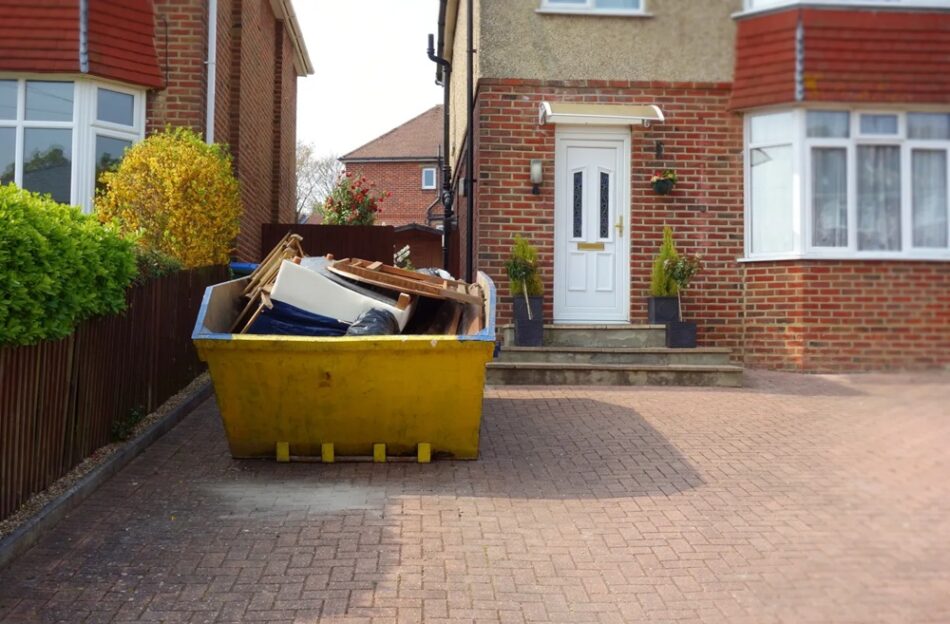If you’ve got a build-up of waste from a home renovation, garden project, or general clear-out, you might be wondering whether to hire a skip or load up the car for a few tip runs. Both options can get the job done, but they offer very different experiences in terms of time, convenience, and overall cost.
At first glance, tip runs might seem like the cheaper route. But when you add in time, effort, and hidden costs like fuel, it’s not always the most efficient option. On the other hand, skip hire is all about convenience and speed. A typical household using skip hire in Verwood can clear large volumes of waste in a single go without the back-and-forth.
Let’s explore which method truly comes out on top when efficiency matters most.
Understanding Skip Hire
Skip hire involves renting a large waste container delivered to your property. You fill it at your pace, and when you’re done, the provider collects it and disposes of the waste properly.
Skips come in a range of sizes to suit everything from small garden projects to full house renovations. You don’t need to sort your waste by type beforehand (within legal limits), and you don’t need to drive anywhere.
For people with limited time or no access to a large vehicle, skip hire is a straightforward solution.
Understanding Tip Runs
Tip runs involve loading your waste into a personal or hired vehicle and driving it to your nearest recycling centre or tip. Depending on the type of waste, you may need to separate it before arrival and possibly wait in a queue.
You also have to consider the physical labour of lifting, loading, and unloading everything yourself. For small amounts of waste, this can be manageable. But if you’re dealing with bulky, heavy, or multiple loads, tip runs can quickly become a time-consuming chore.
Comparing Time Efficiency
Skip Hire:
You load the waste as you go and leave the container on-site. There’s no need to leave your property, and everything gets taken away in one trip. You can work at your own pace, whether you fill it all in one day or gradually over a week.
Tip Runs:
You’re dealing with several stages – loading the car, driving to the tip, waiting your turn, unloading, and repeating. Each trip eats into your day, especially if your local recycling centre has peak-time queues or limited opening hours.
Verdict: Skip hire wins hands down if you value your time.
Cost Considerations
Skip Hire:
There’s an upfront cost, usually based on skip size and hire duration. It might seem like a bigger spend at first, but that’s often offset by how much waste you can move in one go. There’s no need for fuel costs, extra vehicle hire, or your own time.
Tip Runs:
You might avoid direct fees, but fuel, vehicle wear and tear, and time spent all add up. If you need to hire a van or trailer for bigger items, those costs can push this option past the price of a skip.
Verdict: For small, single loads, tip runs may cost less. For anything larger, skip hire is often more economical overall.
Waste Volume Handling
Skip Hire:
Designed for bulk waste. Even a mini skip can hold dozens of bin bags. Larger skips handle heavy and mixed waste with ease.
Tip Runs:
You’re limited by your vehicle size and load limits. That means several trips for large volumes. Overloading your car can also cause damage or safety issues.
Verdict: Skip hire is the better option when dealing with bulky or heavy waste.
Convenience and Labour
Skip Hire:
You avoid the stress of driving, waiting in line, and unloading. Just toss the waste into the skip outside your door and carry on with your day.
Tip Runs:
You do all the heavy lifting, sometimes more than once. Add in the hassle of cleaning your car after each trip and the energy it drains from your day, and it’s clear why many people avoid this route.
Verdict: Skip hire offers far greater convenience, especially for busy households or people with mobility issues.
Environmental Impact
Both methods are responsible options if handled properly. Reputable skip providers sort and recycle a large percentage of collected waste, ensuring it doesn’t all go to landfill.
If you manage your own waste through tip runs, you control what gets recycled. But that also means more effort in separating materials and making sure they go to the right sections at the recycling centre.
Verdict: Both are environmentally sound, but skip hire simplifies the process.
Which Option Is Right for You?
If you’re clearing a small amount of waste and don’t mind making a trip or two, tip runs might do the job. But if you’re working on a renovation, major garden project, or moving house, skip hire offers a faster, cleaner, and more practical approach.
When time, effort, and volume matter, skip hire is usually more efficient, and easier on your back.
Final Thoughts
Choosing between skip hire and tip runs depends on the size of your project, the type of waste, and how much time you’re willing to invest. Tip runs may work for light, occasional loads, but skip hire is the clear winner for larger jobs or when you just want the job done with minimal stress.








